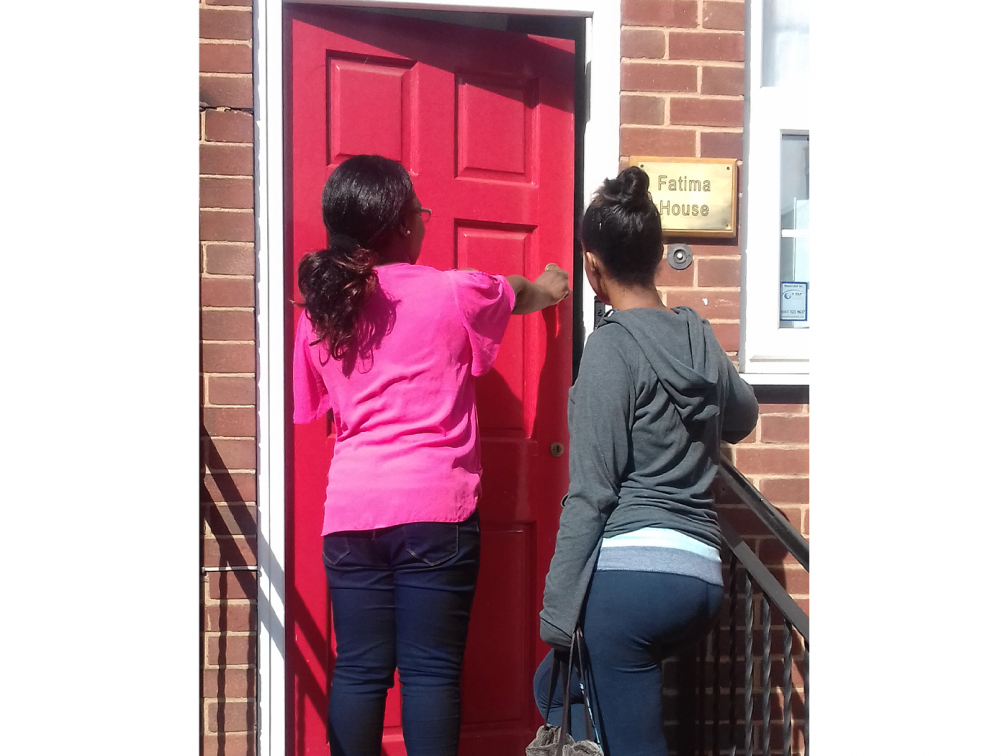The Columbans support the week because since 2000, the Missionary Society of St. Columban has committed itself to, “continue accompanying and defending the rights of migrants,” and “to address the underlying causes of the migration of peoples.” Columbans believe “that we are called to both serve the needs of migrants everywhere, and to address the root causes of migration so that people and their families have the choice to remain at home.”
But how do we welcome refugees in the UK? In Birmingham, the Columbans manage the Fatima House project which offers shelter to female asylum seekers who would otherwise be destitute and homeless. But the broader picture is that refugees entering Britain come into a hostile environment, and a key issue is immigration detention.
The UK has the largest Immigration Detention programme in Europe and it has come under criticism from Church groups. UK policy results in asylum seekers facing detention at any time, even if they have committed no crime whatsoever. Many refugees endure months and some endure years of indefinite detention in the UK. There are no safeguards in place to prevent the detention of vulnerable persons, including those who have faced imprisonment, torture and /or sexual violence in the countries from which they have fled. Many Church groups feel this harmful and expensive practice is unnecessary and deprives people of their freedom, their dignity and is damaging to their mental health.
New Home Office plans, which came into force on 25th May, mean that to be considered for release from detention, potential victims will be required to provide medical evidence that their ongoing detention would place them at “future harm”. The Jesuit Refugee Service in UK (JRS UK) says many of those it supports who have experienced trafficking and modern slavery do not carry physical scars and suffer from complex mental and emotional effects of their experiences. Proving their stories is problematic. And the new regulations include victims of human trafficking who could be re-traumatised if they are put into detention.
Refugees are sometimes given no warning they are going to be detained and have no opportunity to challenge their detention. Immigration detention in the UK is indefinite incarceration, in prison-like conditions, via a purely administrative process: the decision to detain does not go before a judge and, uniquely among European countries, there is no time limit on detention. Proposals would increase the use of detention in the asylum system by reintroducing a system for routinely processing initial claims in detention. In a further retrograde step, they would also make it harder for victims of trafficking to secure release.
Immigration detention has been proven to foster a culture of death and self-harm. The Napier barracks site in Kent is a well-used detention centre which is a former military facility. Those placed there have complained of overcrowding and communal sleeping arrangements have felt dangerous during the Covid-19 pandemic. The High Court ruled earlier this month that the use of the degrading military barracks as asylum accommodation was unlawful.
Last month JRS UK produced a new report calling immigration detention “traumatic and dehumanising.” Based on Catholic Social Teaching and feedback from refugees and asylum seekers supported by JRS UK, their report, ‘Being Human in the Asylum System’, concluded that new government proposals to reform the asylum system will “deepen hostility to refugees” and “threaten the fabric of society”. According to JRS UK, the current system creates insurmountable barriers to accessing protection.
Pope Francis has regularly called for a generous welcome to migrants and refugees. In his most recent social letter, ‘Fratelli Tutti’, he presents the dignity of the human person who is forced to migrate as the ethical centre of his reflection. He views the migrant as a human person of equal worth, dignity, and political and economic rights; but he goes beyond this in seeing the treatment of the person who is forced to migrate as revealing to us our wider capacity to be properly human. How we treat migrants tells us about how we view human life. It reveals how healthy our cultures are. The Pope tells us that open cultures, capable of offering welcome because they value rootedness and belonging, and are willing to feel the suffering of others – thrive.
There are various prayer resources, service materials and ideas for pursuing engagement with, and advocacy for, refugees. Learn more about Refugee Week 2021 here, as well as church and prayer resources here.

